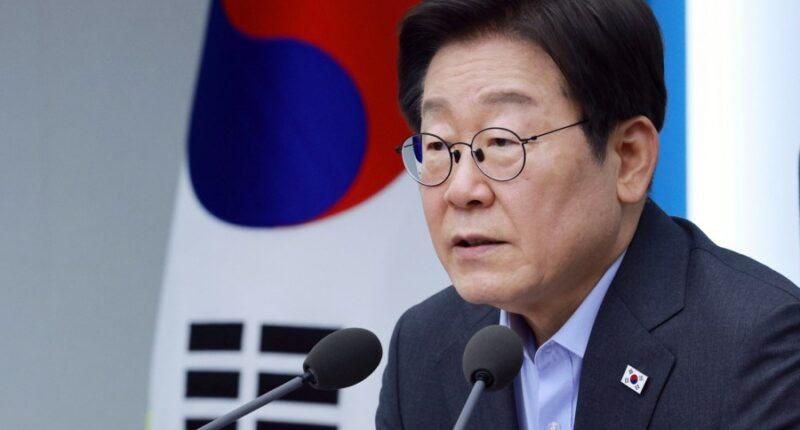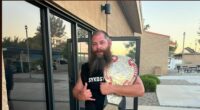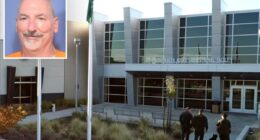Share this @internewscast.com

On Monday, President Donald Trump voiced criticism towards South Korea, just hours before hosting South Korean President Lee Jae Myung at the White House for discussions centered on trade and defense issues.
This meeting will be the first face-to-face encounter between Trump and Lee, with a primary focus likely to be on finalizing the specifics of a trade agreement established earlier in the summer.
Trump has hinted at a 25% tariff on South Korea, a nation holding a trade surplus with the U.S. His general approach to tariffs has involved proposing significant duties on such countries.
The agreement from July imposed a 15% tariff on South Korean imports in return for investment in the U.S. economy, particularly in sectors like semiconductors, batteries, and shipbuilding.
The talks will probably also address defense, as Trump has advocated for more adaptable security agreements and often stated that allies should contribute more financially for U.S. military presence.
Lee is anticipated to resist the notion of a more adaptable agreement, noting that U.S. troops in South Korea play a crucial role in deterring aggression from North Korea.
But the arrangement also serves U.S. interests, placing troops in the Indo-Pacific region and in close proximity to China, increasing readiness should a conflict break out in the region.
On social media Monday morning, Trump criticized the country now under Lee’s leadership.
“WHAT IS GOING ON IN SOUTH KOREA? Seems like a Purge or Revolution. We can’t have that and do business there. I am seeing the new President today at the White House. Thank you for your attention to this matter!!!” the president posted.
It’s not entirely clear to what exactly Trump was referring, but it appeared to be a reference to the investigation into former South Korean President Yoon Suk Yeol, who attempted to institute martial law in the country in December.
The statement came after Trump deployed National Guard troops in Washington, D.C., in an effort to crack down on crime in the nation’s capital. He has said he plans to deploy troops to other Democratic cities as well, starting with Chicago, over the objections of local leaders.
It’s not clear what the remarks could mean for the previously agreed-upon trade deal or the president’s relationship with Lee, who succeeded the conservative Yoon.











